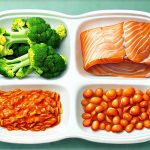Many of us have experienced it – that sudden cramping, bloating, or general discomfort after enjoying an icy beverage on a hot day. It’s a common phenomenon, yet the reasons behind it are surprisingly complex and vary significantly from person to person. What seems like a simple act of refreshment can turn into a digestive ordeal for some, while others remain completely unaffected. Understanding why this happens requires delving into the intricacies of our digestive system, how it reacts to temperature changes, and individual sensitivities that play a significant role. It’s not necessarily about avoiding cold drinks altogether, but understanding your body’s response and making informed choices based on your own tolerance levels.
The sensation isn’t always immediate either; sometimes the discomfort arrives minutes or even hours after consumption. This delay can make it harder to connect the dots between a cold drink and subsequent digestive distress. Factors like the quantity of liquid consumed, what else was eaten around the same time, and individual metabolic rates all contribute to the timing and severity of symptoms. Furthermore, differentiating between temporary discomfort and underlying digestive conditions is crucial. While many experience fleeting issues with cold drinks, persistent problems should always be investigated by a healthcare professional. This article aims to explore these nuances and offer a comprehensive understanding of why some people struggle with cold beverages.
The Physiology of Digestive Temperature Sensitivity
Our digestive system operates most efficiently within a relatively narrow temperature range. It’s not designed for drastic shifts in temperature, which can disrupt the normal processes of enzymatic activity and muscle contractions necessary for breaking down food and moving it through the digestive tract. Think of your stomach as a carefully calibrated machine – sudden cold temperatures can throw off its rhythm. When you ingest something very cold, it forces the body to expend energy warming it up, potentially diverting blood flow from other areas and slowing down digestion. This is particularly relevant in the stomach, where temperature plays a vital role in peristalsis, the wave-like muscle contractions that propel food along.
The esophagus, too, can react to extreme temperatures. While built for passing food, it’s not equipped to rapidly handle icy liquids without some degree of muscular strain. This rapid cooling can sometimes cause temporary esophageal spasms which manifest as discomfort or even pain. Furthermore, the sudden temperature change can affect the sensitivity of nerve endings in the gut, leading to increased awareness of normal digestive processes – essentially making you more attuned to what’s happening and potentially interpreting it as discomfort.
Ultimately, this isn’t about cold being “bad” for you; it’s about how your body responds to a rapid temperature change. Individuals with pre-existing conditions like irritable bowel syndrome (IBS) or sensitive stomachs are often more susceptible because their digestive systems are already prone to fluctuations and sensitivities. The effect can also be cumulative – frequent exposure to very cold drinks might exacerbate sensitivity over time, while a healthy gut generally adapts better. Understanding these factors is vital when considering digestive issues that can be confirmed with testing.
Vata Dosha & Traditional Perspectives
Traditional medicine systems like Ayurveda offer another lens through which to understand this phenomenon. In Ayurveda, Vata dosha governs movement and is associated with air and space elements. Cold temperatures are believed to aggravate Vata, leading to imbalances that manifest as bloating, gas, constipation, and overall digestive discomfort. This perspective highlights the importance of warmth in digestion – favoring warm beverages and foods, especially for individuals predisposed to Vata imbalance.
- Warm liquids are easier for the body to process because they require less energy expenditure for warming.
- Ayurveda emphasizes mindful eating practices, including paying attention to food temperature and timing.
- Incorporating spices like ginger and cardamom into your diet can help balance Vata and promote healthy digestion.
It’s important to note that these traditional perspectives aren’t necessarily scientifically proven in the Western medical sense, but they offer valuable insights into holistic well-being and individualized approaches to health. The core principle – prioritizing warmth and mindful consumption – resonates with many people who experience digestive issues with cold drinks. This isn’t about replacing conventional medicine, but rather complementing it with ancient wisdom that has been practiced for centuries. For those experiencing reflux as a result of these sensitivities, understanding why people with desk jobs might experience more is helpful too.
Gut Microbiome & Temperature Fluctuations
The gut microbiome – the vast community of bacteria residing in our intestines – plays a critical role in digestion and overall health. Recent research suggests that temperature changes can also impact the delicate balance of this microbial ecosystem. Extreme cold, even briefly, may disrupt the activity of certain beneficial bacteria while potentially favoring less desirable strains. This imbalance can lead to increased gas production, bloating, and altered bowel habits.
The microbiome is incredibly sensitive; it’s a complex system easily thrown off by changes in diet, stress levels, and yes, temperature. While more research is needed, there’s growing evidence that maintaining a stable internal environment is key for optimal gut health. This includes minimizing rapid fluctuations in temperature within the digestive tract. Probiotic-rich foods and supplements can help support a healthy microbiome and potentially mitigate some of these effects, but they are not a cure-all solution. A digestive panel can also assist in identifying specific imbalances.
Food Combining & Digestive Load
The concept of food combining suggests that certain food combinations are more difficult to digest than others. While somewhat controversial in mainstream nutrition, it provides a useful framework for understanding why cold drinks might exacerbate digestive issues when consumed with specific meals. For example, drinking a very cold beverage while eating a large meal rich in fats and proteins can significantly increase the digestive load on your system.
- Cold constricts blood vessels, slowing down digestion.
- Combining cold liquids with complex foods (fats, proteins) requires more enzymatic activity to break down both temperature differences and food components.
- This increased digestive effort can lead to bloating, cramping, and discomfort.
The idea is that by minimizing the strain on your digestive system through thoughtful food combinations and mindful consumption of beverages – opting for room temperature or slightly warmed options when possible – you can reduce the likelihood of experiencing adverse reactions. It’s about working with your body rather than overwhelming it with simultaneous challenges. Many also find why some people need repeated testing to be helpful in identifying underlying issues.
It’s also worth noting that individual tolerance levels vary greatly. Some people can effortlessly enjoy icy drinks without any issues, while others experience discomfort even with moderately cold beverages. This highlights the importance of self-awareness and paying attention to how your own body responds to different stimuli. There’s no one-size-fits-all answer; understanding your personal sensitivities is key to managing digestive health and enjoying a comfortable lifestyle. Individuals experiencing bloating may also find information about why people with hypermobile joints helpful, as these conditions are often linked. Finally, understanding why some people experience bloating after drinking water can also illuminate individual sensitivities.


















